
We kindly inform you that, as long as the subject affiliation of our 300.000+ articles is in progress, you might get unsufficient or no results on your third level or second level search. In this case, please broaden your search criteria.

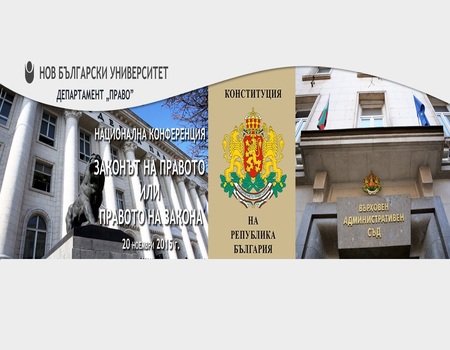
This article renders problematic the prosecutor’s supervision over public administration in contemporary Bulgaria and explores what limitations need to be delineated so that such supervision to be in line with the rule of law. The “general prosecutor’s supervision” is a fundament of socialist administrative law, grounded in the political ideas of Leninism. After the adoption of the democratic Constitution in 1991 that institute passes over to the contemporary administrative law without any theoretical or practical debates for its place in the paradigm of the rule of law. The Prosecutor’s office continues to exist in the same old socialist model as a united, centralized, hierarchical system in the branch of judiciary. While the prosecutor’s supervision is no longer theorized as a general one,the powers of the prosecutor, especially the supervision over public administration, have not been substantially constricted. The article raises the question whether the existing prosecutor’s supervision over public administration in Bulgaria actually turns into prosecutor’s supervision over the citizens and organizations, on one side, and over the court, on the other side. Moreover, the research tackles the balance between the public interest and human rights in the complex relationship between the administration and citizens and offers for debate certain formulas for laying down adequate limitations of the prosecutor’s supervision over public administration.
More...
A general increase in corruption in public administration was one of the “legacies” left after the Great War. The unprecedented hardships of daily life and the general impoverishment affected all strata of European societies during the war. This was particularly true for the territories under the control of the Central Powers which were cut off from their traditional sources of raw materials and food during the war. The misery of malnutrition and disease reduced human preoccupations to concerns for essential biological needs and mere survival. In many ways, this led to the erosion of basic presumptions of honesty and morality among the general public level, and state personnel were not immune from this general trend. On the contrary, their position became complicated because of the new roles assumed by the state for the control over the wartime economy and society. The numerous new responsibilities and areas of influence demanded that state officials at all echelons of the administration be entrusted with expanded powers. On the other hand, their average real income was declining ever more from its prewar level. The low–paid national bureaucracies deviated greatly from the ideal rational bureaucracy imagined by Max Weber. According to the research of Yugoslav/Croatian economist Mijo Mirković, during the period between 1913 and 1925, the Yugoslav state employees’ earnings were reduced by more than 50 percent. To what extent did this war-related and prolonged degradation affect the “moral infrastructure” of Yugoslav state personnel? What was the level of the administrative performance and efficiency that might have been expected from low–paid personnel? This article attempts to answer these questions by examining administrative performance of Yugoslav state personnel while it was engaged in state interventionist policies in domains of control over housing relations, over foreign trade and emigration process. In each of these domains of public affairs the state agenda was compromised by the general system of misconduct and corruption that occurred in the state administration. Low-level corruption and abuses started to appear as state officials gained the right to make arbitrary decisions on each individual problem or application. In the field of housing policy, the requisitioning practices proved to be nothing more than a cover-up for extortion and different schemes of misuse and corruption by state officials. In domain of the trade controls, the license trade regime became notorious for the wide-spread corruption involved in its procedures and conduct. The control over emigration affairs ended up in an elaborated system of extortion of applicants. Instead of serving and protecting the interests of citizens, the poorly paid administrative personnel in Belgrade tried to improve their own material position by abusing their powers. State competencies were not only violated but they also ended up serving the private interests of state employees. In view of this outcome, one wonders whether citizens might not have been better off if the state had not intervened in these affairs at all. Study of corruption in the Yugoslav public administration provides a good insight into the basic administrative limits of its “human infrastructure”. This should be taken into account when considering (possible) outcomes and concrete results of the Yugoslav state policy in the interwar period.
More...
Przedmiotem analizy w niniejszym artykule jest ocena wpływu wdrażanych procedur dotyczących środków wykonawczych Komisji Europejskiej na jakość tworzonych zapisów prawnych, a także na możliwość uwzględnienia interesów narodowych. Na przykładzie polskiej statystyki publicznej i wybranych rozwiązań prawnych autorzy podjęli próbę odpowiedzi na pytanie, czy zmiany w komitologii poprawiły – tak jak to było oczekiwane – tempo prac oraz efektywność procedowania środków wykonawczych, czyli czy usprawniło to proces wprowadzania nowych rozwiązań w obszarze europejskiego systemu statystycznego, z korzyścią zarówno dla poszczególnych jego członków, jak i Eurostatu. Dodatkowo przedstawiono zalecenia, jakimi powinny kierować się krajowe urzędy statystyczne w przypadku procedowania nad środkami wykonawczymi Komisji.
More...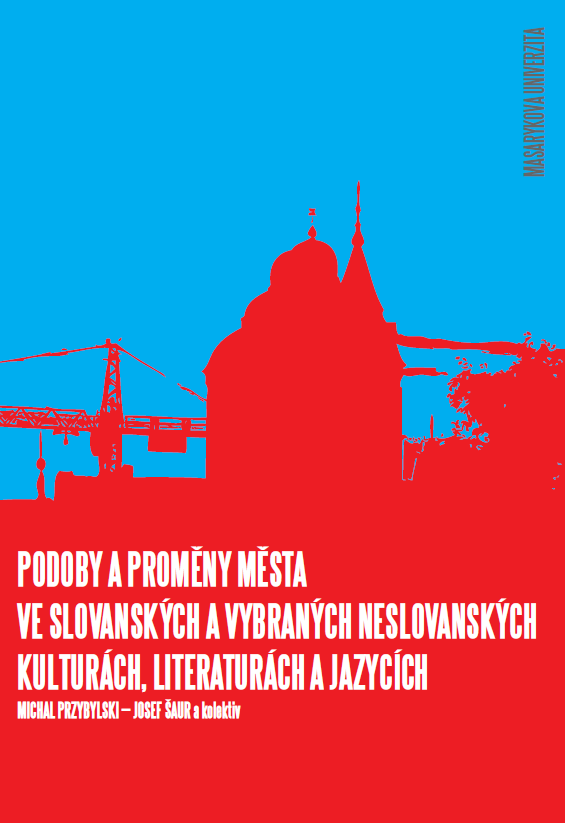
In his chapter on the history of the city administration in Moscow, Josef Šaur briefly describes the development of city administrations in Russia. Unlike those in Europe, they did not have defined privileges and autonomy, but for most of history, they played the role of administrative and military centers. Urban administrations were first introduced in pre-revolutionary Russia at the end of the 18th century, and they reached their peak under Alexander II. They are characterized by strict supervision from state authorities, who also interfered in cities’ internal matters. This is well illustrated by the example of Boris Chicherin, who tried throughout his mandate to defend the independence of the mayoral function. His public appearances were repeatedly criticized and became the cause of his removal from office despite his many successes in the administration of Moscow.
More...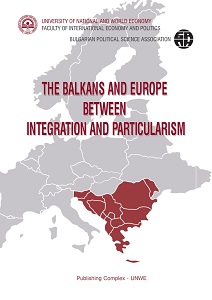
According to Eurostat statistics, more than 10 years after joining the European Union, Bulgaria and Romania "dispute" the last places in the rankings, which reveal the evolution of the main indicators of the quality of life. In addition, it seems that 12 years of European funds absorption, a large part of them being for the development of human capital, were not enough for the Romanian and Bulgarian societies to make progress in improving the quality of life of their citizens. Based on these considerations, this study aims to analyse, in a comparative manner, how social policies on several topics, such as, population, education or health have or have not produced positive effects on quality of life. Moreover, our study is relying on the fact that, although there are national social policy regulations and action lines conforming to the European Social Model, in the two societies (Romanian and Bulgarian), statistics confirm us that the effects are not similar in each of the 28 EU countries.
More...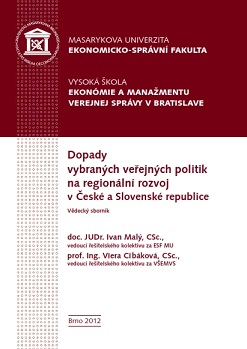
The paper examines the problem of the influence of self-government on regional development. We discuss the role of strategic documents and other programming activities and its impact on the basic economic indicators and the property of regions. The paper shows partial results of research of regional policy especially related to the property issues.
More...
This paper deals with the ways of influencing the regional development by the nonprofit sector. While evaluating this influence; authors emphasize the public services, incoming financial means, voluntary work and the donation, and public support of the nonprofit organizations above all. Authors also consider relations between the nonprofit institutions and public administration as a whole, their cooperation, competition or partnership. Statistic data are being used, especially the outputs of the satellite account of the nonprofit institutions. The results can be used for the comparison with the Slovak republic situation.
More...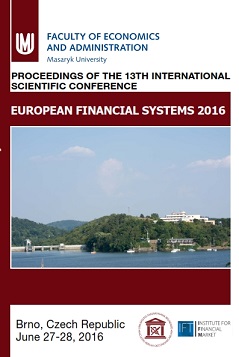
This paper deals with classification of expenses and revenue mainly for managerial purposes in the area of the Czech state administration. From 2011 the Czech public sector units prepare accounting data under the accrual basis obligatorily. This means among others that they record and release expenses and revenue data to external users in accordance with mandatory regulations. The main aim of the paper it to examine obligatory rules of expenses and revenue classification used by the state administration units and possibilities of their utilization for managerial purposes. Further the paper concentrates on a current state of internal cost classifications and allocation especially in the context of financial management and 3E concept monitoring. As main data sources the paper uses the Ministry of Finance of the Czech Republic standardized data, the Ministry of Defence of the Czech Republic internal data, relating legal regulations and scientific papers. Description, analysis, comparison, and synthesis of main findings were used in the paper as basic scientific methods.
More...
The objective of the paper was to work out municipal bonds financial risk categories and sub-categories from the investor and issuer point of view and verify which types of risk are crucial for municipal bonds traded on the Polish bonds organized market - Catalyst. Risk categorization was based on risk factors. Conducted research proved that both investors and issuers should consider: market risk, credit risk, liquidity risk, operational risk, legal risk, additional rights risk, business risk and political risk. However different risk sub-categories were identified or risk sub-categories were the same but consequences of risk factors influence were different. The analysis of the municipal bonds traded on the Catalyst market showed that in between all types of financial risk the most crucial for investors are liquidity and market risk, for issuers operational risk, market risk and legal risk.
More...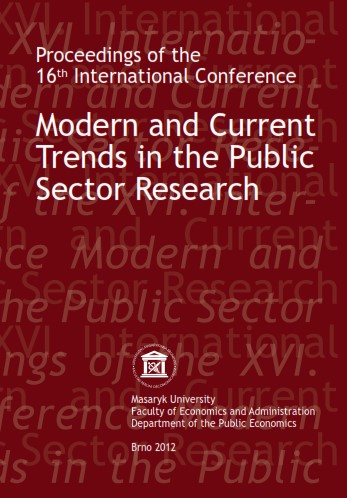
Administrative costs of taxation are for many years investigated by the economic theory and practice. They are connected with the principle of effectiveness of taxation and the goal for any state is to collect taxes relatively as cheap as possible. The goal of this paperis to present our data about the administrative costs of taxation in Slovakia and to compare results with the situation in other developed countries. We decided to use the already existing and tested Czech methodology to calculate results, to be able to obtain comparable data. Our results suggest that the administrative costs of taxation in Slovakia, expressed by the percentage of costs to tax revenues, are higher than in almost all comparable countries – some actions to improve this situation would be necessary.
More...
Küreselleşmeyle birlikte ulus devlet sınırlarının birçok alanda etkisini yitirdiği bir dönemde göç gibi ulus ötesi hareketler devletlerin maruz kaldığı etkiyi büyütmektedir. Göç olgusu yalnızca insanların fiziki olarak bir yerden bir yere gitmesi değil, aynı zamanda gittiği yerde bir takım etkilere maruz kaldığı gibi belki o kadar olmasa da gittiği bu yerde bir takım etkilemeler de yaptığı gerçeğidir. Ulus devletlerde gördüğümüz ve etkileme ve etkilenmelerin vatandaşlar tarafından gerçekleştiği ortamlar, bahsettiğimiz tarzdaki ulus ötesi hareketler sonrasında tabiyetten bağımsız bir takım ulus ötesi toplumsal ve ekonomik bağlar kurulmasına yol açmakta, bu bağlar sonucunda da uluslararası sistem ve devletin yapısında değişiklikler ya da en azından değişikliklere yol açabilecek hareketler meydana gelmektedir. Ulus ötesinden gelen kendi uluslarının sınırlarını aşan yapılar gittikleri yerde bir takım kurallar, formasyonlarla karşılaşmakta ve bu genelde uygulamada resmi olarak yetkilendirilmiş ve görevlendirilmiş kişi veya makamlarca dizayn edilmektedir. Ülkemize oluşan bu tür ulus ötesi hareketlerin düzenlenmesi, organize edilmesi, bunların üstünde yetki kullanılması ve bunlara hizmet verilmesi bağlamında gerçekleştirilecek olan uyum süreci çok önemlidir. Bu süreçte yetkili ve görevli olanlar, yetki ve görev sınırları, bu bağlamdaki konumları ortaya konulmalı, aşikar kılınmalıdır. Bu alandaki mevcut durum ortaya konulduktan sonra ancak üstüne olumlu girişimler yapmak mümkün olacaktır. Ülkemiz açısından konuya bakıldığında, ulus ötesi hareketlerle gelenlere yapılacak muameleler hususunda yasal olarak en yetkili merciler mülki amirlikler ve belediyelerdir. Valiler özellikle illerdeki mülki amir ve hükümetin ildeki temsilcisi olmaları sıfatıyla, belediyeler de yürüttükleri hizmetler açısından kanunlarla bir takım çerçevesi belli yetki ve görevlerle donatılmışlardır. Valilerin konumu daha ziyade yetki, belediyelerin konumu da daha ziyade hizmet noktasında dikkate çekmekte ise de yetki ve görev ilintisi nedeniyle birbirleriyle bağlantısında şüphe bulunmamaktadır. Konuya küreselleşme ve ulus ötesicilik kavramıyla başlayıp bunlarla bağlantılı ve etkileşimi yüksek olan göç konusu ve etkileşimleri incelendikten sonra Vali ve genelde belediye başkanları özelde büyükşehir belediye başkanlarının konumları, etki ve etkinlikleri ortaya konulacaktır.
More...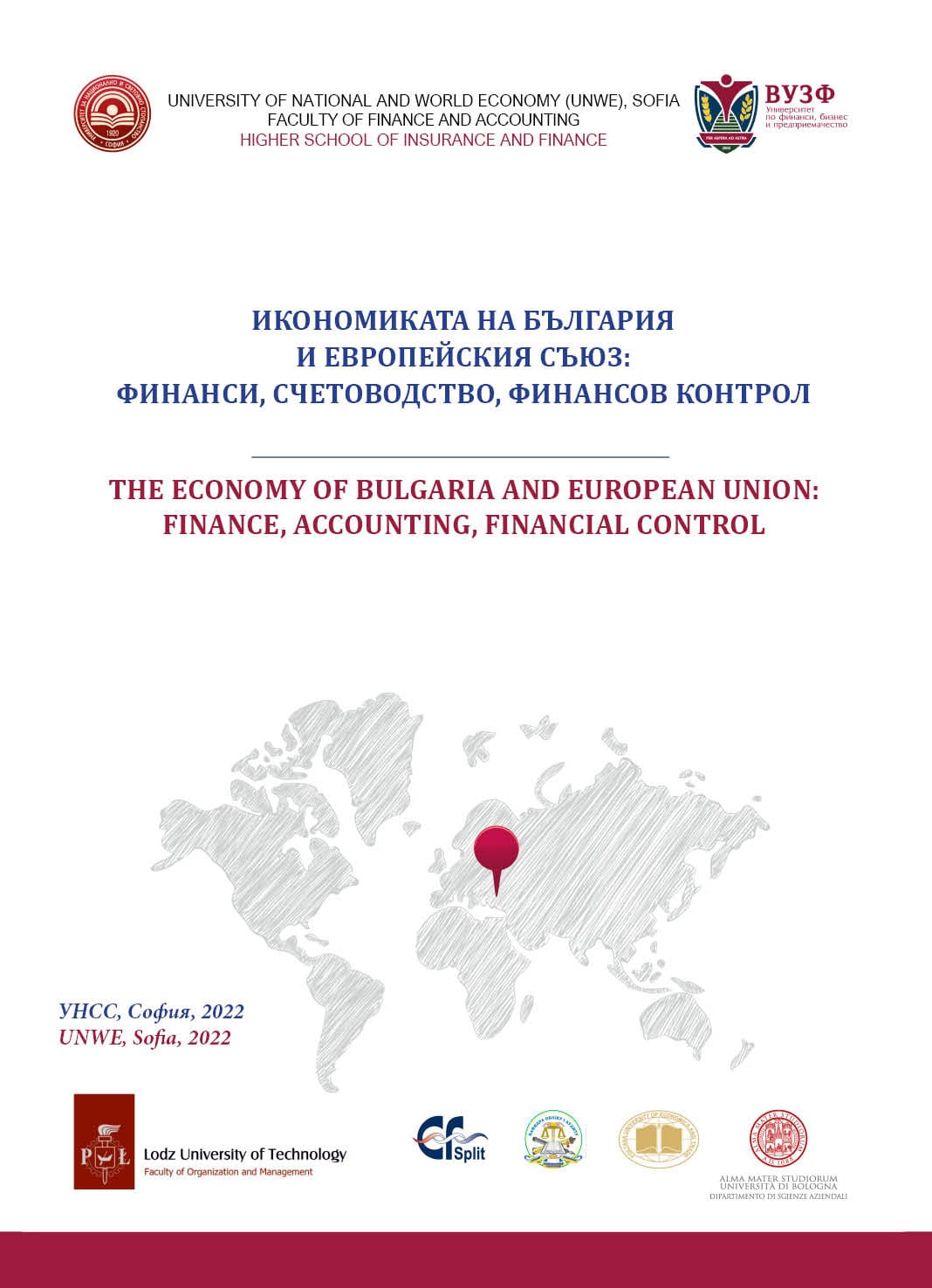
The article analyzed the powers of president of the Republic of Bulgaria conclusion which can be reached is that the Bulgarian constitution are a number of false and conjuncture solutions as a result of which there is inadequate transformation of the high electoral legitimacy of the president in significantly reduced institutional capacity. The limited constitutional powers of the President are a serious structural defect of the system of state power in Bulgaria , which leads to a violation of the necessary balance between the authorities and does not hinder the establishment and functioning of the system of mutual control between them. It is necessary that the constitutional powers of each state institution should be harmonized as much as possible with its legitimate status. In this connection defines our proposals from functional systemic and structural nature that would allow the presidential institution to take a more independent and equal position in relation to other states power. They would provide an opportunity for the Bulgarian president to be given a new, important role in the system of government. The new increased, functional capacity of the presidential institution would enable it to take its rightful place, given its degree of legitimacy. New they functionalities of the presidential institution would allow it and be an important factor in strengthening of statehood , as well as reorganization of the political system in Bulgaria.
More...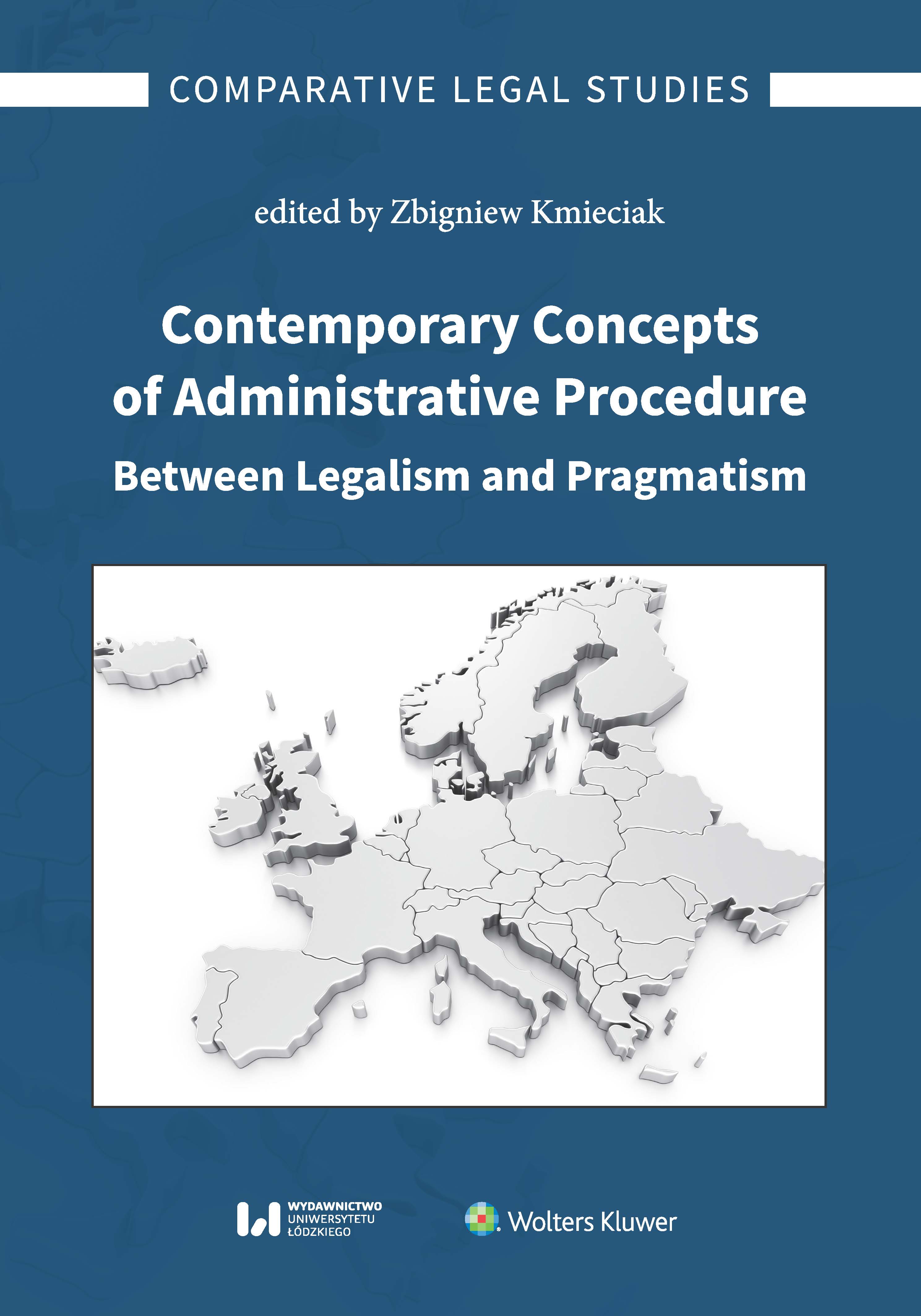
The bulk of official legal decisions are made not by judges, nor by legislature, but by public administrations. Behind these decisions are administrative procedures, understood as the rules governing the process of decision-making: from administrative sanctions, to public procurement, from ministerial regulations supplementing a statute, to urban planning developing and designing the land use. “Administrative procedure” ultimately refers to a how governmental organizations actually conduct business and manage responsibilities. Today there are a bewilderingly large and diverse number of administrative procedures. Whilst the first general administrative procedure acts (APAs) focused on the so-called “administrative act” (typically a unilateral decision made by public bodies), their reach progressively broadened as the responsibilities of the executive branch and public administrations grew. APAs branched out to deal with other legal acts, such as rules and regulations, agreements under public law, guidelines and administrative guidance, as well as setting general principles to which administrative activities would be subject. The different models on which most administrative procedures are based differ deeply from each other and require a different legal approach regarding their basic elements: from the main types of administrative procedure to their general procedural principles; from infringement sanctions of procedural rules to judicial review, and so forth. A contemporary theory of administrative procedure – and an updated APA – will thus have to assume a broader concept.
More...
The fast technological improvements, sustainable growth and development of the world economy have led to what has become a fundamental determinant of the modern, hectic way of life, known as the lifestyle of the 21st century. In such context, people’s expectations are increasing, and they are always seeking for the new opportunities; however, many are often failing to take a break from every day’s haste and stress. Young people often do not have time for their private and business obligations, and thus for activism and caring for society. Scientist in technical and architectural sciences, Mr. sc. Marina Šimunić, finds that only 5% of young people are socially engaged in the Republic of Croatia. This research finds the main reason for such a low interest in social activities and lack of initiative for changes is the fact that youth accept their community as it is. Decreased involvement of young people in social actions has becoming more evident in Croatia especially, when an average of 30,000 young people a year have migrated in the period from 2015 to 2020.
More...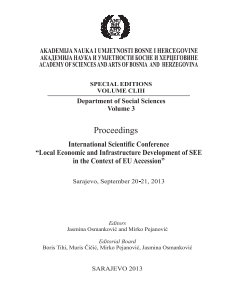
Local economic development implies maintained and premeditated process in which, beside local authorities, participate other actors, in order to create better conditions for the economic development and growth, and to improve life quality of population within local communities. Due to their constitutional and legal position local self-governments are an important segment of political system and an important subject of social development. In the local self-government system in Bosnia and Herzegovina, municipal prefects and mayors as the representatives of an executive authority functions are important institutions of the local selfgovernment. Significance of their role in the local economic and infrastructural development is observable not only because of their executive function but also in their role to recommend development policy to the municipal council/city council related to all issues within the localself-government jurisdiction. Municipal prefects and mayors create and report economic and development plans to the municipal/city council, they create and report various investment programmes, environmental and urban development strategies and other plans and strategies together with regulatory acts. Units of municipal self-government, besides delivering basic services, do have obligation to create an environment for expansion of local economic capacities and ensure long and sustainable development. Countries in transitional process such as Bosnia and Herzegovina require time in order to change local business and economic circumstances, to create participative competences and capacitate local actors for the participation in this particular process. On that path, taking into the consideration legal and structural authorities of executive political function of local self-government, it is possible to emphasize that solution of local economic development in Bosnia and Herzegovina is in hands of municipal prefects and mayors. Paper has following parts: Introductions, Local Community as the Social Base of Local Self-Government; Constitutional and Legal Position of Local Self-Government Units in Bosnia and Herzegovina; Local Economic Development, Local Economic Development in Bosnia and Herzegovina The Role of Municipal Prefects/Mayors in Creation of Local Economic Development, Conclusion, and References.
More...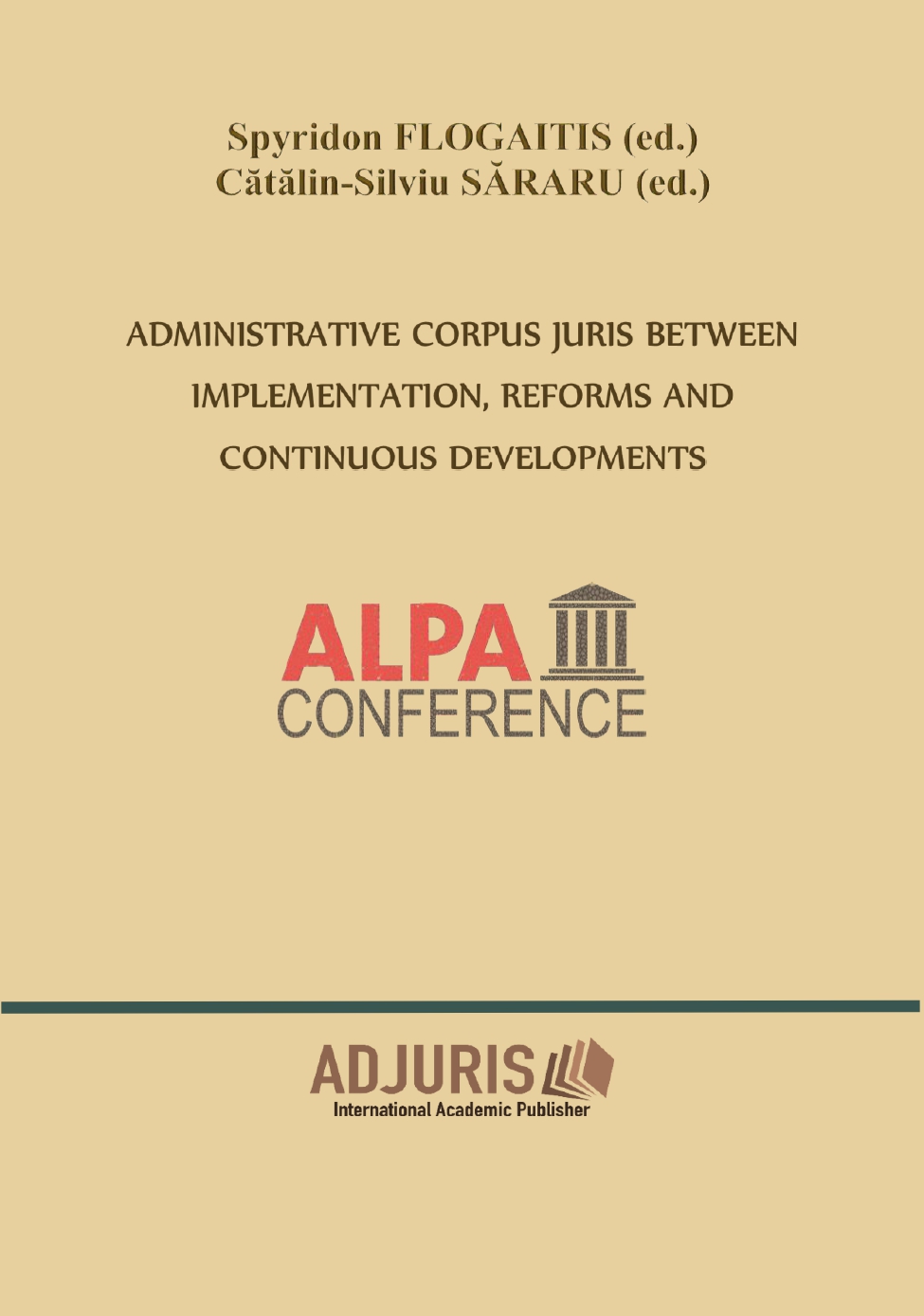
The entry into force of the Romanian Administrative Code has maintained, unfortunately, a controversial legal provision, regarding the suspension of the public servant's employment relationship, in case legal proceedings are taken against the public servant, if commited certain acts. From our perspective, article 513 paragraph (1) letter l) of the Romanian Administrative Code raises serious concerns regarding the presumption of innocence and the right to work of the public servants found in such situation. The present study tries to bring a multidisciplinary legal interpretation of the authors regarding the analysed legal provision and certain arguments for considering this provision able to be declared, soon, unconstitutional.
More...
The forms of association of local communities are the intercommunity development association and the metropolitan area. These two forms of association of local communities can be formed into private entities of public interest. In contrast to inter-community development associations, metropolitan areas may have a limited territorial jurisdiction of up to 30 km compared to the county municipality where they can be established. In addition, according to the normative acts in force, metropolitan areas can only be established around municipalities of county or municipalities declared. Although the legislator wished for a difference between intercommunity development associations and metropolitan areas, even though there was no express text of the law that could be applied for differentiation, local public authorities understood to establish metropolitan areas in the same way as intercommunity development associations. Realizing that the metropolitan area can be used to determine financial and social growth within the communities that compose it, the legislator, through the relevant ministry, published on its virtual page, on March 8, for public consultation, on the Metropolitan areas Law, wishing to know the position of the citizens in relation to the changes they wish to make in relation to this form of association of local communities. In the present study, we analyze the provisions of the draft normative act on metropolitan areas quantitatively, showing what essential changes shall be made within this form of association of local communities if the law shall be promulgated, what are the financial and social benefits for the local communities that make up a metropolitan area and what changes could be made to the draft normative act. For the administrative territorial organization of the Romanian state, the legislation on metropolitan areas represented a step toward a modern administrative territorial organization of European type, respecting the principle of subsidiarity more than it is currently respected.
More...
Even in the present context, we must now the legal preconditions for the harmonization of Ukrainian legislation in the field of competition law with the law of the European Union. Due to its evolution, the competition law has been, and remains, a priority in the harmonization process of Ukrainian legislation. This aspect now is very important due to Ukraine determination to became member of European Union and because is one of the Romania s neighbors.
More...
The administrative law`s formation as a distinctive branch of law has been generated by the necessity to organize the complex activity of the public administration, the social relations within this sphere being, therefore, regulated also in relation to other branches of public and private law. Except for the well-known inner connection between the contravention and criminal matters from the perspective of the guarantees provided to the individuals, the administrative law is highly connected to other branches of public law, such as criminal executional law, as we will present further. The current paper aims to present the peculiarities of the surrender procedure based on a European arrest warrant from the perspective of the issuing of administrative acts that can be subject to the control of lawfulness before the contentious administrative Court.
More...